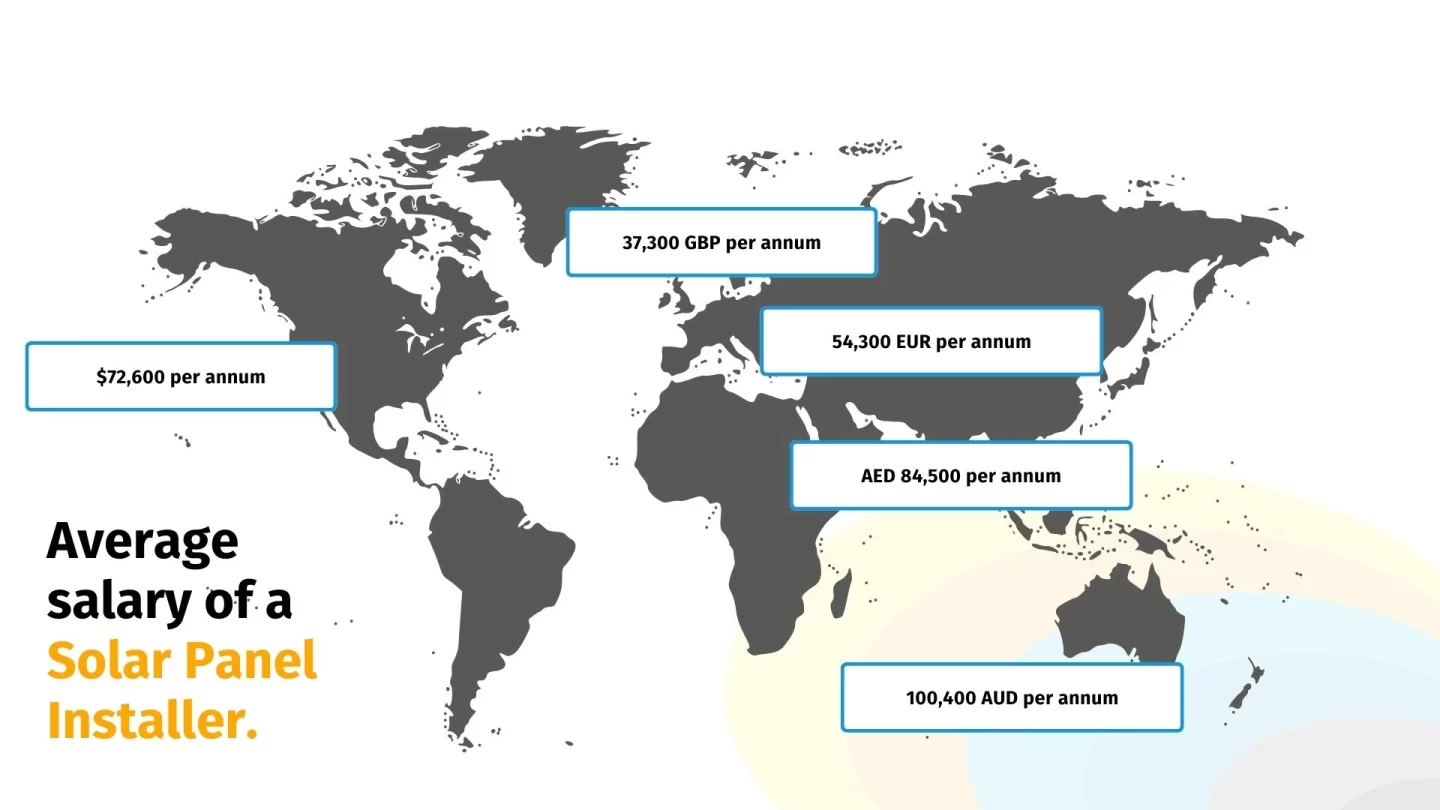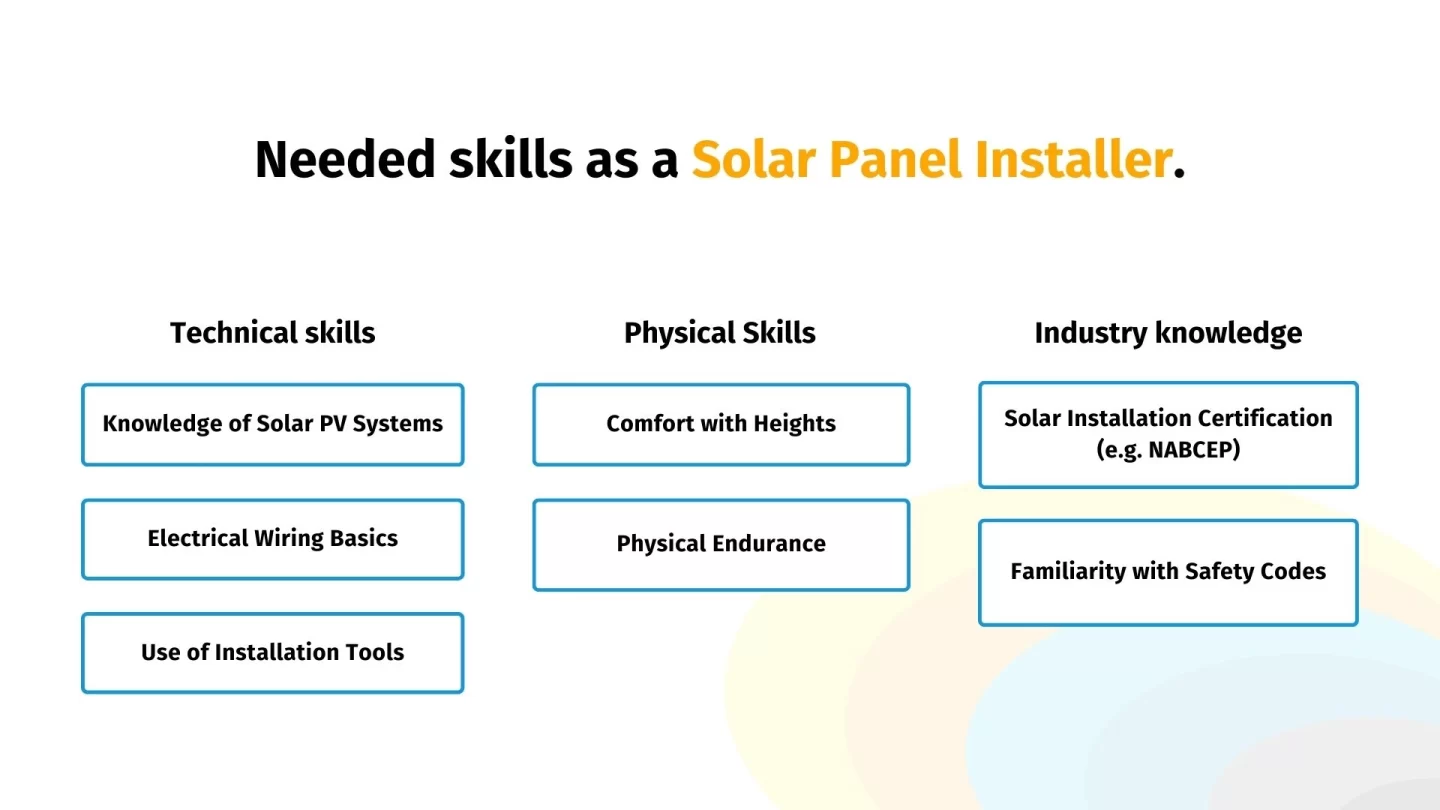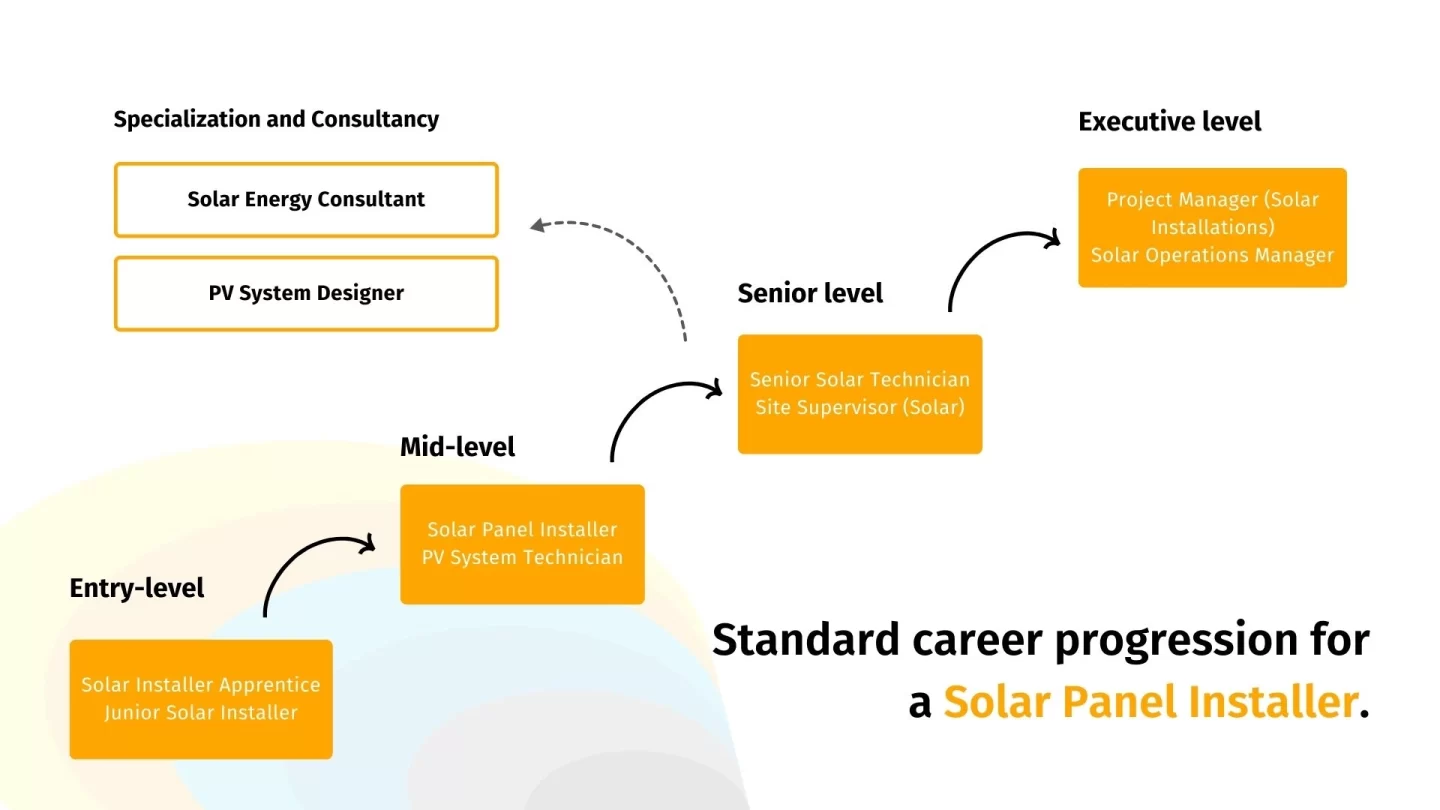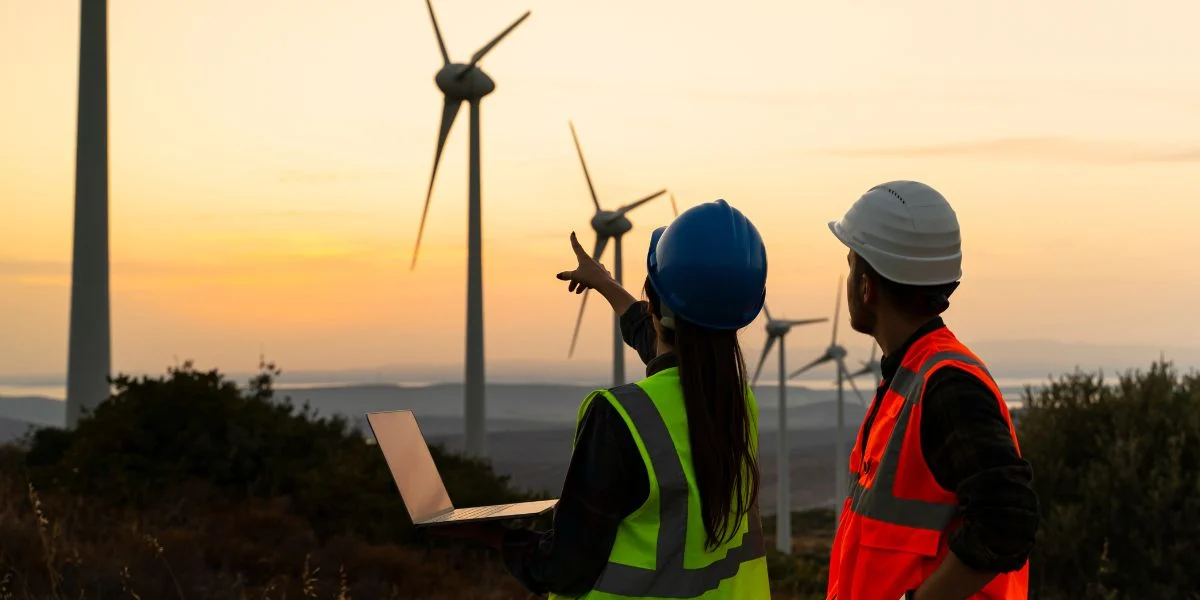With the growing focus on renewable energy, the solar industry has become one of the most dynamic sectors. As a solar panel installer, you play an important role in harnessing the power of the sun to generate clean energy, making a significant contribution to the environment.
Estimated reading time: 7 minutes
What is a solar panel installer?
A solar panel installer is a skilled technician responsible for the assembly, installation, and maintenance of solar photovoltaic (PV) systems. These systems convert sunlight into electricity and are installed on rooftops, ground-mounted systems, or other solar infrastructures. Solar panel installers ensure that systems are properly set up and functioning optimally to generate efficient, renewable energy.
What does a solar panel installer at an energy company do?
Solar panel installers are key players in renewable energy companies. Their responsibilities often include:
- Installing and connecting solar panels and inverters
- Ensuring solar panels are functioning properly by troubleshooting and maintaining systems
- Assessing installation sites and determining system layouts based on electrical and structural considerations
- Collaborating with other team members to complete installations efficiently and safely
- Adhering to safety regulations and building codes to ensure compliance
Salary and Benefits

As shown by data collected in October 2024.
The average salary for solar panel installers varies around the world, impacted by factors like experience, regional demand, and local cost of living. In the United States, solar panel installers make an average of $72,600 per year. In the United Kingdom, they earn about £37,300 annually, while in the Netherlands, the average is approximately €54,300 per year. Australia offers competitive pay at around AUD 100,400, reflecting the growing demand in the renewable sector. In the UAE, where solar energy initiatives are expanding, installers earn an average of AED 84,500 annually.
Alongside competitive pay, solar panel installers often enjoy benefits such as health insurance, retirement plans, and paid time off. Many employers also offer perks like travel allowances for installation sites, equipment stipends for tools, and access to ongoing training for certifications in solar energy systems. Some roles may include company vehicles, especially for travel to remote installations, and in certain cases, housing allowances for projects that require temporary relocation.
Solar panel installer skills and requirements
To excel as a solar panel installer, a combination of technical skills, industry certifications, and hands-on experience is essential.
A high school diploma is typically the minimum requirement, but many installers attend trade schools or technical programs focused on renewable energy to gain specialized knowledge in solar systems. In certain regions, certifications are also required or highly recommended. For example, the NABCEP (North American Board of Certified Energy Practitioners) PV Installation Professional certification is recognized across the U.S. as a standard for solar installation professionals, verifying an installer’s proficiency in system design, installation, and troubleshooting. Some states may require additional licenses or certification to perform electrical work.
Physical endurance and comfort working at heights are also important, as the job often involves carrying heavy panels and working on roofs. Solar panel installers must also have solid problem-solving skills to handle system issues, as well as attention to detail for accurate installations. Soft skills like teamwork and communication are valuable since installers often collaborate with electricians, engineers, and other team members on projects. Additionally, knowledge of energy efficiency standards and emerging solar technologies help installers to stay updated and support sustainable practices in the energy sector.

Responsibilities of a solar panel installer
Solar panel installers have a wide variety of tasks to ensure that solar energy systems are set up and functioning properly. Some responsibilities include:
Setting up, installing, and wiring solar panels and electrical systems
Ensuring systems meet local codes and regulatory standards
Testing and troubleshooting issues with photovoltaic (PV) systems
Providing system maintenance and monitoring to maximize energy output
Adhering to safety protocols during installations
Locations of solar panel installer jobs
Solar panel installers are in demand globally as more countries and companies prioritize renewable energy. Solar installers can find work in both urban and rural settings, depending on where solar energy projects are implemented. Installers often travel between job sites, which could range from residential rooftops to large-scale solar farms in remote locations.
Challenges in installing solar panels
Although being a solar panel installer offers many rewards, there are some challenges associated with the role:
Physical demands
Installing solar panels involves heavy lifting, working in outdoor environments, and climbing onto roofs.
Weather conditions
Installers often work in a variety of weather conditions, which can pose safety risks.
Long hours
Project timelines can be tight, especially when working on large solar farms or commercial projects.
Career progression and growth opportunities

A career as a Solar Panel Installer typically begins with entry-level positions like Solar Installer Apprentice or Junior Solar Installer. In these roles, professionals gain hands-on experience with basic solar panel installations, learning the foundational skills and safety protocols required for the job.
With experience, installers move into mid-level roles, such as Solar Panel Installer or PV System Technician, where they handle a broader range of installation tasks, system setups, and maintenance. In these positions, they develop greater technical proficiency and start to manage more complex projects.
As they advance further, professionals may step into senior roles like Senior Solar Technician or Site Supervisor (Solar). Here, they lead teams, oversee project timelines, ensure quality standards, and maintain safety on-site. At this level, installers often take on more strategic responsibilities and guide less experienced team members.
For those interested in specialization or consultancy, options include becoming a Solar Energy Consultant or a PV System Designer, focusing on system planning, client advising, and design optimization. Executive-level roles such as Project Manager (Solar Installations) or Solar Operations Manager allow professionals to leverage both their technical skills and managerial expertise to oversee multiple projects, teams, and client relationships.
Work environment and culture
The work environment for solar panel installers is generally outdoors at installation sites, which can range from residential rooftops to large-scale solar farms. This role requires working in various weather conditions, and safety is paramount. Team collaboration is often required, as installers frequently work with electricians, contractors, and engineers to complete projects efficiently and safely.
How to become a solar panel installer in the Energy Industry
To become a solar panel installer, you typically need a high school diploma or equivalent, followed by specialized training in photovoltaic technology. Many technical schools and community colleges offer courses in solar energy installation, and gaining hands-on experience through apprenticeships is a common pathway into the industry. Obtaining relevant certifications, such as NABCEP, also increases your job opportunities.
At WTS Energy, we support your growth in this field through specialized training services, including courses designed to prepare you for essential solar photovoltaic certifications.
Benefits of working as a solar panel installer
- Job growth- The demand for solar panel installers will increase as more countries transition to renewable energy.
- Environmentally impactful- Solar panel installers help reduce the world’s dependence on fossil fuels, contributing to environmental sustainability.
- Competitive salary- With the growing demand for renewable energy, solar panel installers can expect competitive salaries and benefits.
- Career growth- Opportunities for specialization and advancement into management or consultancy roles.
Drawbacks
Nonetheless, the job also has some drawbacks such as the following:
- Physically demanding- The job involves lifting heavy equipment and working in varying weather conditions.
- Risk of injury- Working at heights and with electrical systems can be hazardous without proper safety protocols.

Current Jobs
Looking for jobs in the energy sector? WTS Energy is always looking for talented project managers to fill roles in oil, gas, and renewable energy companies worldwide. Explore our current job openings on our career page and take the next step in your career today!
